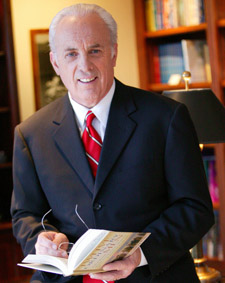From the works of Charles H. Spurgeon
There are some whose conduct is all that we could wish, whose conversation is for the most part unctuous with the gospel, mid savory of truth ; but even they will confess to a . . . charge, which I must now sorrowfully bring against them and against myself; namely, that there is too little real communion with Jesus Christ. If thanks to divine grace, we are enabled to keep our conduct tolerably consistent, and our lives unblemished, yet how much have we to cry out against ourselves, from a lack of that holy fellowship with Jesus which is the high mark of the true child of God Brethren, let me ask some of you how long it is since you have had a love-visit from Jesus Christ—how long since you could say, “My beloved is mine, and I am his: he feedeth among the lilies?” How long is it since “he brought you into his banqueting house, and his banner over you was love?” Perhaps some of you will be able to say, “It was but this morning that I saw him; I beheld his face with joy, and was ravished with his countenance.” But I fear the greatest part of you will have to say, “Ah, sir, for months I have been without the shinings of his countenance.” What have you been doing, then, and what has been your way of life? Have you been groaning every day? Have you been weeping every minute? “No!” Then you ought to have been. I can not understand how your piety can be of any very brilliant order, if you can live without the sunlight of Christ, and yet be happy. Christians will lose sometimes the society of Jesus; the connection between themselves and Christ will be at times severed, as to their own feeling of it; but they will always groan and cry when they lose their Jesus. What! is Christ thy Brother, and does he live in thine house, and yet thou hast not spoken to him for a month? I fear there is little love between thee and thy Brother, for thou hast had no conversation with him for so long. What! is Christ the Husband of his church, and has she had no fellowship with him for all this time? Brethren, let me not condemn you, let me not even judge you, but let your conscience speak. Mine shall, and so shall yours. Have we not too much forgotten Christ? Have we not lived too much without him? Have we not been contented with the world, instead of desiring Christ? Have we been, all of us, like that little ewe lamb that did drink out of the master’s cup, and feed from his table? Have we not rather been content to stray upon the mountains, feeding anywhere but at home? I fear many of the troubles of our heart spring from want of communion with Jesus. Not many of us are the kind of men who, living with Jesus, his secrets must know. O! no; we live too much without the light of his countenance; and are too happy when he is gone from us. Let us, each of us, then, for I am sure we have each of us need, in some measure, put up the prayer, “O Lord, revive thy work!” Ah! methinks I hear one professor saying, “Sir, I need no revival in my heart; I am everything I wish to be.” Down on your knees, my brethren! down on your knees for him! He is the man that most needs to be prayed for. He says that he needs no revival in his soul; but he needs a revival of his humility, at any rate. If he supposes that he is all that he ought to be, and if he knows that he is all he wishes to be, he has very mean notions of what a Christian is, or of what a Christian should be, and very unjust ideas of himself. Those are in the best condition who, while they know they want reviving, yet feel their condition and groan under it. (The True Essence of Revival)
Filed under: Christianity, Devotional | Comments Off on Spurgeon On Christians Who Are Satisfied With Their Spiritual Condition






































































